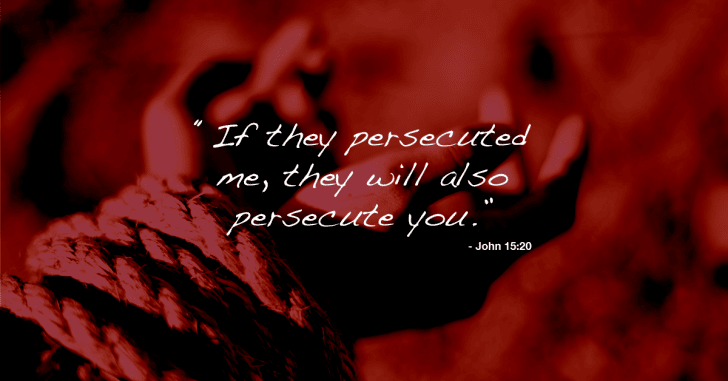John 4:16-26 | In Spirit And Truth
16 Jesus said to her, “Go, call your husband, and come here.” 17 The woman answered him, “I have no husband.” Jesus said to her, “You are right in saying, ‘I have no husband’;18 for you have had five husbands, and the one you now have is not your husband. What you have said is true.” 19 The woman said to him, “Sir, I perceive that you are a prophet.20 Our fathers worshiped on this mountain, but you say that in Jerusalem is the place where people ought to worship.” 21 Jesus said to her, “Woman, believe me, the hour is coming when neither on this mountain nor in Jerusalem will you worship the Father. 22 You worship what you do not know; we worship what we know, for salvation is from the Jews.23 But the hour is coming, and is now here, when the true worshipers will worship the Father in spirit and truth, for the Father is seeking such people to worship him. 24 God is spirit, and those who worship him must worship in spirit and truth.” 25 The woman said to him, “I know that Messiah is coming (he who is called Christ). When he comes, he will tell us all things.” 26 Jesus said to her, “I who speak to you am he.” (John 4:16-26)
The setting:
Jesus left Judea and stopped in Samaria along His way to Galilee. He came to a specific town, a specific place (Jacob’s well), at a specific time (the sixth hour or 12:00pm). His disciples went into the city to find food. Jesus remained at the well. A woman came to draw water and Jesus, waiting at the well, said to her, “Give me a drink”. This woman was surprised that a man, especially a Jew, would ask her for a drink. He said to her, “If you knew the gift of God, and who it is that is saying to you, ‘Give me a drink,’ you would have asked him, and he would have given you living water (John 4:10).” The woman, still in a temporal mindset, was confused because the well was deep and Jesus had no bucket. She said, “Where are you going to get that water? What makes you think you’re better than our father Jacob? He dug this well and drank from it along with his livestock.” Jesus said, ““Everyone who drinks of this water will be thirsty again, but whoever drinks of the water that I will give him will never be thirsty again. The water that I will give him will become in him a spring of water welling up to eternal life (John 4:13-14).” The conversation reaches a climactic moment when a great juxtaposition is presented between Jacob the great patriarch and Jesus; between Jacob’s well/water and the water Jesus is offering. And the woman responds with, “Sir, give me this water, so that I will not be thirsty or have to come here to draw water (John 4:15).”
Jesus’ prophetic confrontation
At this point, I’m not sure what this woman is expecting. Is she expecting to be led away to a different well? Is she being facetious by asking for water that is supposedly superior to Jacob’s water? I don’t know what she was thinking or expecting. But Jesus, in His omniscient majesty, makes a prophetic confrontation. Rather than dealing with semantics, He transitions to the matter of the heart. He addresses her sin.
Verses 16-18: Jesus said to her, “Go, call your husband, and come here.” The woman answered him, “I have no husband.” Jesus said to her, “You are right in saying, ‘I have no husband’; for you have had five husbands, and the one you now have is not your husband. What you have said is true.”
Last week we focused on the grace of Jesus. 1 ) The grace of Jesus is considerate and intentional. 2) The grace of Jesus is relevant and relational. 3) The grace of Jesus is refreshing and sustaining. This part of the story is where the relevancy of His grace is expressed. Relevancy means being closely connected or appropriate to the matter at hand. If grace didn’t address our sin, the matter at hand, it would not be relevant grace. The matter at hand is an adulteress, a woman who, by Jewish standards, was a criminal deserving death. She was caught in her sin by Jesus.
On one hand, the old saying, “your sins will find you” is true. On the other hand, the statement, “in your sin the grace of Jesus will find you”, is also true. The grace of Jesus prophetically confronts, but doesn’t condemn. For God did not send his Son into the world to condemn the world, but in order that the world might be saved through him (John 3:17).
Reaction to the confrontation of Christ
Deflect or receive
Our nature tends to respond to this gracious confrontation of sin by deflecting. That’s how I tend to react. When confronted with sin, even in the most gracious manner, I tend to change the direction of the subject. When confronted with her sin, the woman said to him, “Sir, I perceive that you are a prophet. Our fathers worshiped on this mountain, but you say that in Jerusalem is the place where people ought to worship (John 4:19-20).”
Worship is a noble sounding discussion. Let’s talk about worship! Our fathers worshipped on Mount Gerizim, but you (Jews) say the place to worship is in Jerusalem. What makes your temple better than ours? This is a deflection. Your church reads the King James, but we use the NIV. You play those contemporary choruses with a band, but we play the traditional hymns with a piano. We offer communion every Sunday, but you say you are only supposed to offer it monthly. Confrontation; “You are embezzling from you work.” Response; “You say to pay a tithe, but I give 12%.”
Religion or relationship
Our reaction to Christ’s gracious confrontation is a matter of religion versus relationship. When we deflect, we operate out of religiosity. We frame the situation with rules and semantics. We keep things surface level. When we receive the gracious confrontation of Christ, we embrace a relationship, we operate out of humility and accept His grace. We allow Him to reach us at a heart level.
The Father is seeking worshippers
In this moment, Jesus knows this woman is deflecting. He doesn’t bring up her sin again. His point was made and He drops it. He doesn’t join her in her religiosity either. He stays on task and in the context of the deflected conversation, He cuts below the surface and addresses the heart again.
Not where, but who
Jesus said to her, “Woman, believe me, the hour is coming when neither on this mountain nor in Jerusalem will you worship the Father (John 4:21). I want to draw your attention to the last words in that verse, “you worship the Father”. It’s not a matter of where we worship, but a matter of who we worship. It’s about the Father. Jesus said things like, “no one comes to the Father but by me”. He’s calling God Father and there is a prerequisite to be associated as a child of God. John 1:12-13 says, “But to all who did receive him, who believed in his name, he gave the right to become children of God, who were born, not of blood nor of the will of the flesh nor of the will of man, but of God“. Jesus is saying it’s not about right religion (surface level), it’s about right relationship. If you want to worship God, you have to believe and receive Jesus for who He is. Those who are born again are born into the family of God and become children of God by rebirth. Jesus said in John 5:23, “Whoever does not honor the Son does not honor the Father who sent him“. You cannot truly worship the Father apart from the Son.
Jesus is the temple
The question placed before Jesus was, “Which temple is the proper place to meet with God”. Jesus asserts that it’s not about the place where we worship; it’s about who we are worshipping. Remember John 2:19,21? Jesus said, “Destroy this temple, and in three days I will raise it up.” Verse 21 says, “But he was speaking about the temple of his body.” It’s not on this mountain or that mountain that we meet with God. It’t not this building or that building that provide access to God. Jesus is the means by which we meet God on this planet. Jesus is the temple.
Salvation from the Jews?
Then Jesus makes this seemingly abrupt statement, “You worship what you do not know; we worship what we know, for salvation is from the Jews “. (John 4:22) Is Jesus making a claim that the Jews know God, but the Samaritans do not? Listen to what Jesus said in John 8:19 to some of the Jews who should have known God based on their heritage and religious experiences, “Jesus answered, “You know neither me nor my Father. If you knew me, you would know my Father also.” It’s not a matter of race or religious background, it’s not a matter of knowing about Jesus, it’s about knowing Jesus.
What He’s saying is, if you don’t know who I really am (the Word was with God and the Word was God), you don’t honor me for who I am and you don’t love me for who I am, you don’t know, honor or love God. With that being said, it doesn’t matter which mountain, shrine, mosque or temple you use for worship, you’re not worshipping God. It’s a matter of truth and the spirit.
Worship in spirit and truth
And Jesus continues to pursue her at a spiritual level and in John 4:23-24 says, “But the hour is coming, and is now here, when the true worshipers will worship the Father in spirit and truth, for the Father is seeking such people to worship him. God is spirit, and those who worship him must worship in spirit and truth”.
God is seeking real worshipper. True worshippers embrace Jesus for who He really is. See, it’s a matter of spirit (right heart) and truth (right theology). He never said spirit or truth.
Meet the Messiah
Verse 25 and 26: The woman said to him, “I know that Messiah is coming (he who is called Christ). When he comes, he will tell us all things.” (She knew about Jesus, but she hadn’t yet met Jesus.) Jesus said to her, “I who speak to you am he.” (John 44:26-26) Meet the Messiah!
Final thoughts:
Have you met the Messiah? In His grace, Jesus waits at the well of your life offering you living water. In his grace, He looks prophetically into your hearts and confronts you with your sin and disbelief. Have you met the Messiah? Will you receive Him in spirit and truth?


